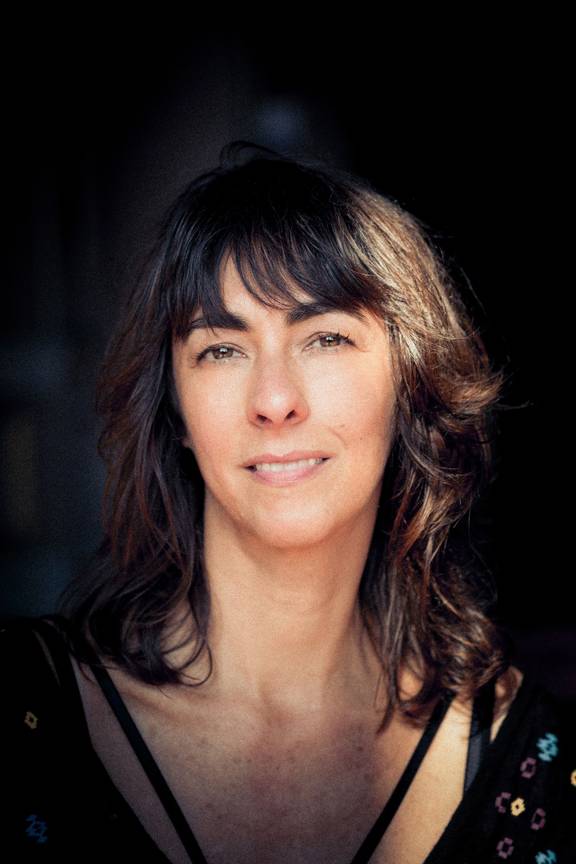From show to show, Brazilian artist Christiane Jatahy has been developing a unique language that brings the words and gestures of actors onstage into dialogue with images on a cinema screen. It is a way of changing the perception of reality that is imposed on us and of changing the world.

© Estelle Valente
| Christiane Jatahy breaks the silence with her new show: “It is a response to the arrival of Bolsonaro and his extreme-right-wing government in Brazil.”
Christiane Jatahy: ‘This show is the possibility of a change, the seeds of revolution'
“When I bring theatre and film together onstage, it’s always to pave a third way whereby I can present different points of view. It’s a utopian space and time in which documentary mixes with fiction, dreams, and reality.” A major artist in contemporary theatre, the Brazilian film-maker and director Christiane Jatahy explores our world and its contradictions by combining the personal and the political, fantasy and documentary, power structures and the urgent need for change.
Passionate about literature and film, she studied direction, philosophy and journalism to be able to bear witness to the state of the world. In her early shows, she revisited the female characters in Strindberg’s Miss Julie, Chekhov’s Three Sisters, and Shakespeare’s Macbeth. In 2019 at the Théâtre National, she presented Le présent qui déborde, a show tackling questions related to migration by juxtaposing the stories of migrants with the voyage of Ulysses in the Odyssey.
Après le silence is the third instalment in La trilogie des horreurs. “It is a response to the arrival of Bolsonaro and his extreme-right-wing government in Brazil. The idea is not just to look at Bolsonaro’s politics, but rather to reflect on the factors that enabled his rise to power.” Specifically, Après le silence explores the inequalities inherited from the colonial period, the victims of which are the Afro-descendant and indigenous communities. “This exploitation is rooted in the history of Brazil, long before Bolsonaro. There has been progress, but we still need to work to change things.”
Break the silence
Après le silence is loosely adapted from Itamar Vieira Junior’s novel Torto Arado and Eduardo Coutinho’s documentary film Cabra Marcado Para Morrer. For this show, Christiane Jatahy went to film in the Chapada Diamantina region, in the heart of the state of Bahia, with the communities described in the novel. “People live in those lands, the quilombos, who are the descendants of communities founded by fleeing slaves. They work without pay on land where they have no rights, just to be able to live there. It is slavery. The new generation does not accept the situation and is living in an environment of increasingly systematic violence. In order to tackle the subject of the violence endured by the black population, it was important that everyone involved in the show had a connection to those peoples.”
"Religion provides support to people through the voices of their ancestors"
Christiane Jatahy met one of her actors while carrying out research prior to filming. Another is an important actor and activist in Brazil. The third is the granddaughter of a peasant activist who was assassinated in 1962. Jatahy drew inspiration from a film telling his life story. From the dreams and accounts that alternate between the screen and the stage, magic and spirits connected to the Afro-descendant religions often emerge. “It’s very relevant and very important for the community because it’s a way for its members to self-organise. Religion provides support to people through the voices of their ancestors. It also provides a strong connection with their roots and with the past of resistance to slavery.”
Despite the pain and melancholy that run through it, Après le silence is not a depressing show. It is steeped in resistance, shaped by encounters with people and by love. It is the voice of people who find the strength to keep living, not just in sadness but by drawing on all the energy that can be found in life.
“The title refers to the silence that is imposed on Afro-descended and indigenous people, robbed of their land and of a space in which to tell their stories. Après le silence is the possibility of a change, the seeds of revolution.”
Read more about: Podium